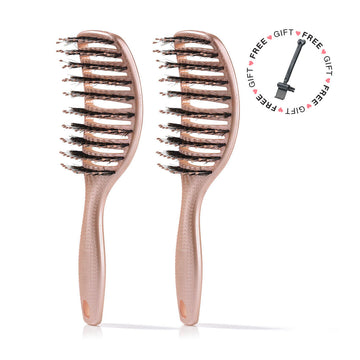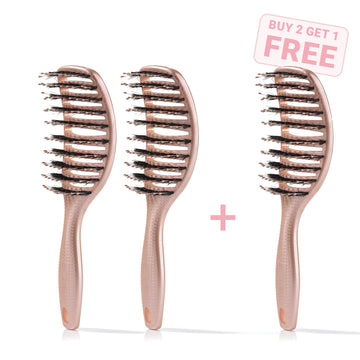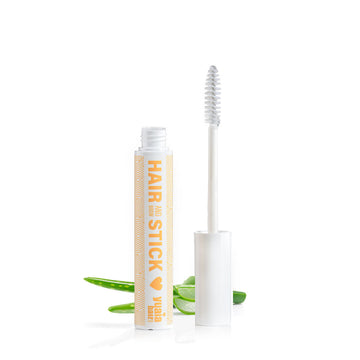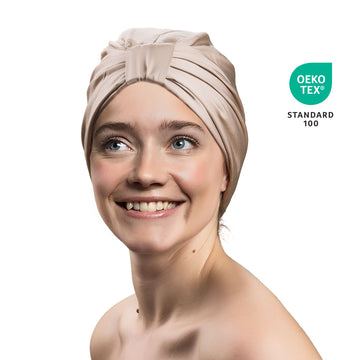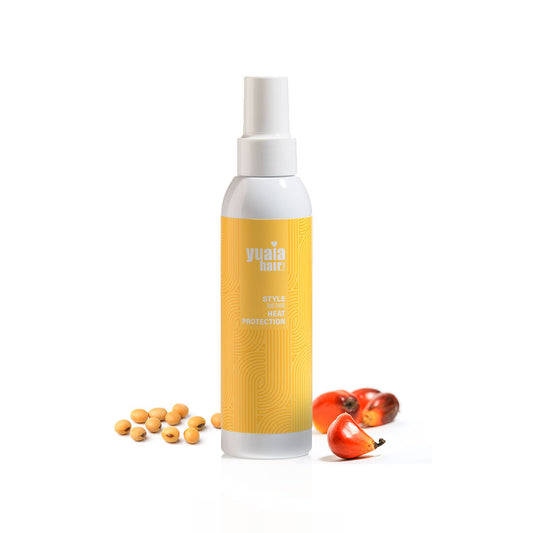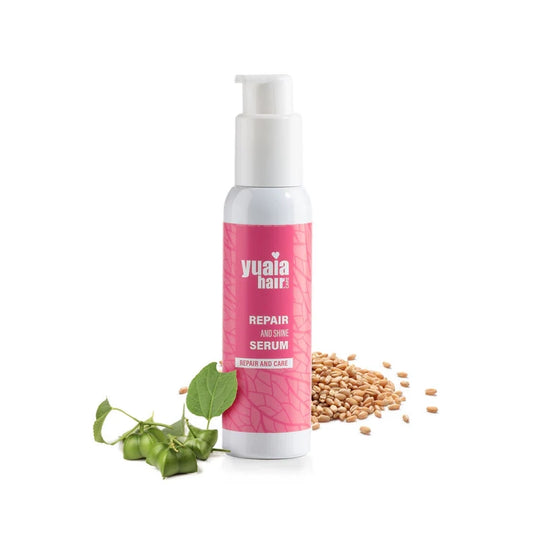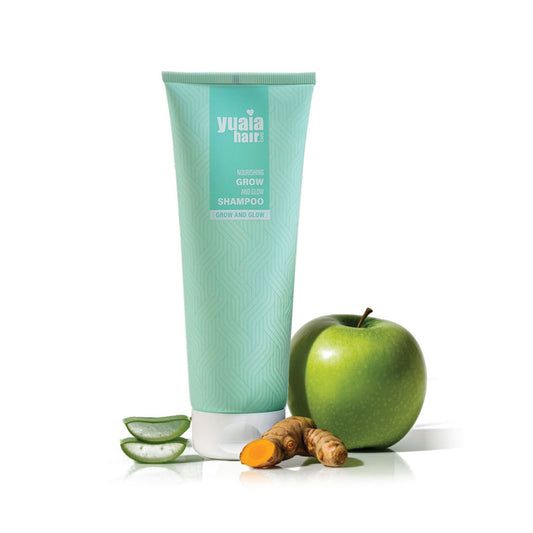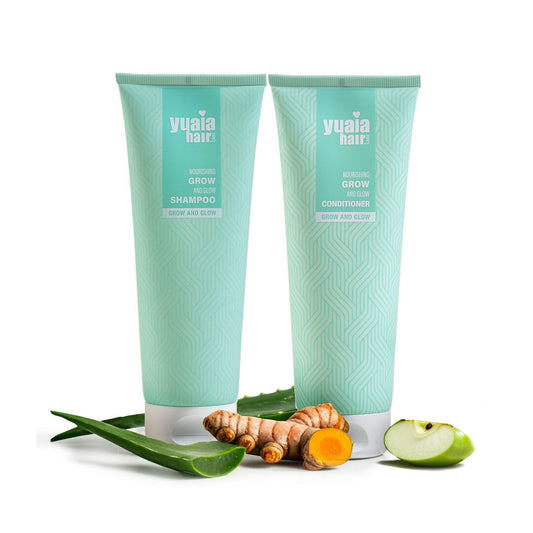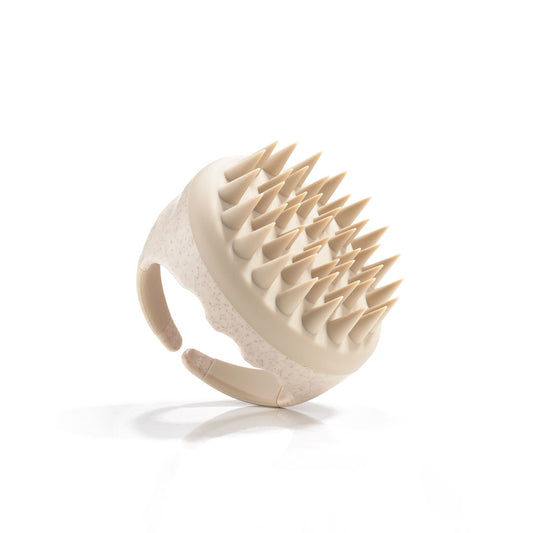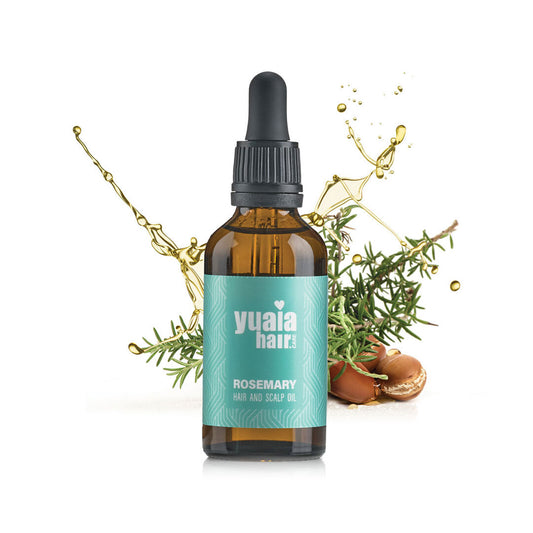Try a scalp massage
A scalp massage is a simple yet effective way to promote hair growth and improve overall scalp health. Not only does it stimulate blood circulation to the hair follicles, but it also helps to reduce stress and tension, which are common contributors to hair loss. By incorporating regular scalp massages into your hair care routine, you can create a calming ritual that supports both your mental well-being and your hair health.
We recommend using our Deep Scalp Brush to enhance your scalp massage experience. This specially designed brush effectively stimulates the scalp while gently exfoliating, helping to remove dead skin cells and buildup. Its ergonomic design makes it easy to use, allowing you to focus on relaxation while promoting healthier hair growth.
Hear Frederikkes story about hair loss due to stress
Frederikkes hair loss began when she suffered from stress in her job as a teacher. This triggered alopecia, also known as patchy baldness, which just got worse and worse. She says: ‘My journey with Alopecia has been insanely hard! It was very sudden - one day in May 2023 I could see a small bald spot on the top of my head. I remember panicking a bit. I went to the doctor and was diagnosed with stress and Alopecia. The spot got bigger, and suddenly one day in August I noticed another spot on the back of my head, and they both grew bigger and bigger.’

It affected her not only physically, but especially emotionally, as hair is often a part of one's identity. She says: ‘It affected me a lot emotionally and also gave me a blow to my self-confidence. I was often very sad and didn't want to go out because of my bald patches.’
How Frederikke got her hair back
Yuaia Haircare's hair vitamins came to Frederikke in early February 2024 and now in May 2024, she can see a huge difference in her hair. Where there used to be patches, she has now grown hair of just under 11 centimetres. She says: ‘I started using Yuaia's hair vitamins and hairbrush in February 2024 and it was definitely a life changer for me! I started to notice an effect pretty quickly and continued for a few months, hoping to get my hair back. Things picked up when I started using Yuaia's hairbrush and hair vitamins. I wasn't losing as much hair anymore and my scalp quickly became balanced. To this day, my scalp doesn't hurt anymore and my hair is much healthier! It's denser, longer and shinier! The little hairs are no longer small, but a good 11-12 cm long! It blends in well with the rest of my hair and I don't even notice it anymore.’

This story is important to share with those of you who also suffer from stress-induced hair loss. You've probably experienced many of the same thoughts and problems as Frederikke. So don't worry, you're not alone. We will always be here to give you the best advice possible, whether you are a customer or not, it makes no difference to us. As long as we can help you on the road to your dream hair!
Product recommendations for stress hair loss
We have gathered some of our best product recommendations for you. We've tried to put together our recommendations based on the fact that the hair as a whole should have the optimal conditions.
Hair vitamins
We can't do without them! When the body is under stress, it's working overtime and it takes a toll on the body and not least the hair. That's why it can be particularly important to make sure you get the vitamins and minerals necessary for the body to maintain normal hair. We believe we've developed some of the best hair vitamins on the market with our unique formula containing biotin, zinc, bamboo extract, vitamins C, D, E, B6, B12 and more. They're made as deliciously tasty strawberry flavoured gummies. They are free from gluten, gelatine, lactose and sugar.
Get a 10% discount code sent to you
Receive the best tips and tricks for your hair from Lotte and Nanna 🥰
Hair serum for hair loss
Our Grow and Glow serum will be a big hit. It is formulated with growth-promoting ingredients such as Capilia Longa and Amaranthus Candstus Seed Extract, which help counteract hair loss and increase hair growth. In addition, the serum contains a combination of several active ingredients that give the scalp a gentle exfoliation that maintains the scalp microflora. This reduces the tendency for oily hair and scalp. By reducing excess oil and supporting scalp health, the serum can effectively combat conditions that may contribute to stress hair loss. The serum in particular is worthy of a recommendation as it is the most concentrated of our Grow and Glow products and is designed to stay on the scalp, allowing it to work for a long time.
Grow and Glow shampoo and conditioner
This shampoo and conditioner, like the serum, is designed to minimise hair loss. They also contain Capilia Longa and Amaranthus Candstus Seed. These powerful ingredients work together to nourish the scalp and promote healthy hair growth. These products penetrate deep into the hair roots, strengthening the hair shaft and adding radiant shine. The unique formulation includes fruit acids that gently exfoliate the scalp and leave it refreshed. Making it especially good if you also experience scalp problems. Of course, they're sulphate and silicone free, so they're as gentle on the hair as possible.
 2-5 day delivery
2-5 day delivery
 25.000+ satisfied customers
25.000+ satisfied customers
 Satisfaction Guarantee
Satisfaction Guarantee









